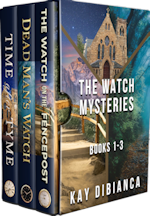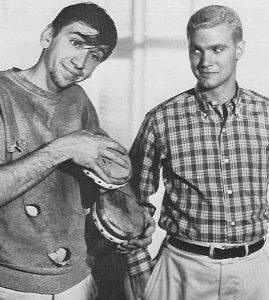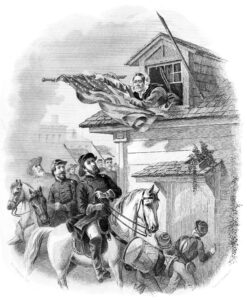 JSB’s post yesterday reminded me of all my notes in my phone, many of which I’ll never use. So, I thought I’d share them with you. Perhaps they’ll spark some ideas for the WIP.
JSB’s post yesterday reminded me of all my notes in my phone, many of which I’ll never use. So, I thought I’d share them with you. Perhaps they’ll spark some ideas for the WIP.
Some are random thoughts, others are research tidbits I’d learned during the day that I didn’t want to forget, with a few fun facts mixed in.
Research
Mystery/thriller writers, this one’s for you!
- Ankle monitors aren’t monitored in real time by law enforcement. In many cases, they’re only a GPS tracker. Some devices don’t even have geographical restrictions. The GPS track is stored by private companies, not law enforcement or prisons. Parolees have even committed murder while wearing them!
Need a creative way for your detective to find a clue? Check out this nifty tidbit I discovered.
- Privately owned garbage trucks and tow trucks come equipped with license plate readers. The recordings are loaded into a private database, and police can ask for permission to access those databases without a search warrant.
For fiction bathed in reality, how might you use this next one?
Brainwaves: We have three brainwaves in our lifetime, depending on age. Scientists can study each brainwave independently through an EEG.
Did your contemporary killer leave behind a shoe impression? No problem…
SoleMate FPX is a new and improved system that combines a comprehensive footwear evidence management tool with an extensive footwear reference database for the rapid identification of shoe prints.
Using combinations of shapes, patterns, text, and logos to describe the visible characteristics found on a shoeprint left at a crime scene, it’s possible to identify matching items of footwear in a matter of minutes via the intuitive FPX search interface.
Fun Facts
Mystery/thriller/suspense writers, do what you will with the following fun facts.
- Zinc Phosphide = rat poison.
- To mummify a corpse, bury in kitty litter. Or, for a more thorough job, dismember the corpse and bury the body parts in kitty litter.
- Necrophilia is also a diagnosis.
Ahem. Moving on…
- The heart beats 2.5 billion times per lifetime.
- Mistletoe kills the tree it hangs on! Expect an article about this during the holiday season. 😉
- One million seconds equals eleven days.
- A corpse can often have bowel movements for days.
- A decapitated head can have consciousness for 15-20 seconds after death. In my phone there’s a checkmark after this fun fact because I used it in Silent Mayhem.
Calling all nature lovers!
- Plants can recognize their siblings, and they’re given preferential treatment.Biologists discovered that plants exhibit competitiveness among strangers of the same species but are more accommodating toward siblings. Researchers found root allocation increased when groups of strangers shared a pot, not when groups of siblings shared a pot.
In other words, plants compete with strangers by allocating more of their roots below ground. This helps them as they fight for access to water and soil nutrients.
- Plants are just as capable of deception as animals.
Many plants release scents or volatile chemicals when they are stressed, attracting insects and other animals that can help them escape a dangerous situation. Ready to get your mind blown?
- The smell of freshly cut grass is actually a plant distress call.
Crazy, right? Now you know why I jotted it down. 😉
- Trees are the longest living organisms on earth. One of the many reasons they live so long is called “negligible senescence.” Meaning, rather than declining in health and productivity with age, some trees actually get healthier and more productive.
- There’s a plant that’s able to simultaneously produce tomatoes and potatoes, called the “ketchup and fries” plant (unverified, so check this fact before you use it).
Historical fiction writers, these next few are for you!
- Some prehistoric societies de-fleshed the bone from their dearly departed.
During the medieval period, bodies that needed transportation over long distances for burial were also de-fleshed, by dismembering the body and boiling the pieces. The bones were then transported. The soft tissues they buried close to the place of death.
- Throughout early modern times, up until at least the mid 19th century, it was a common belief that the touch of a murderer—executed by hanging—could cure all kinds of illnesses, ranging from cancer and goiters to skin conditions. Afflicted persons would attend executions hoping to receive the “death stroke” of the executed prisoner.
Need a realistic way to misdirect readers away from your antagonist?
- A heart murmur can often cause a person to fail a lie detector test. Doesn’t matter if they’re 100% truthful. The heart murmur will read as deception.
If you’re wondering why I’d share notes from my phone, I’ll leave you with this proverb.
Nothing in nature lives for itself.
Rivers don’t drink their own water.
Trees don’t eat their own fruit.
The Sun doesn’t shine for itself.
Flowers don’t spread fragrance for themselves.
Living for others is the rule of nature.
Did I jumpstart your creative juices? Any favorites?
![]()
Happy Release Day, book baby!
Three unconventional eco-warriors are on a mission to save polar bears from the nation’s largest animal trafficking organization—one dead poacher at a time.
Now available in ebook and paperback.

 I’ve often thought of the imagination as a muscle. With proper care and exercise, it gets stronger. Leave it alone, and it atrophies.
I’ve often thought of the imagination as a muscle. With proper care and exercise, it gets stronger. Leave it alone, and it atrophies.
















